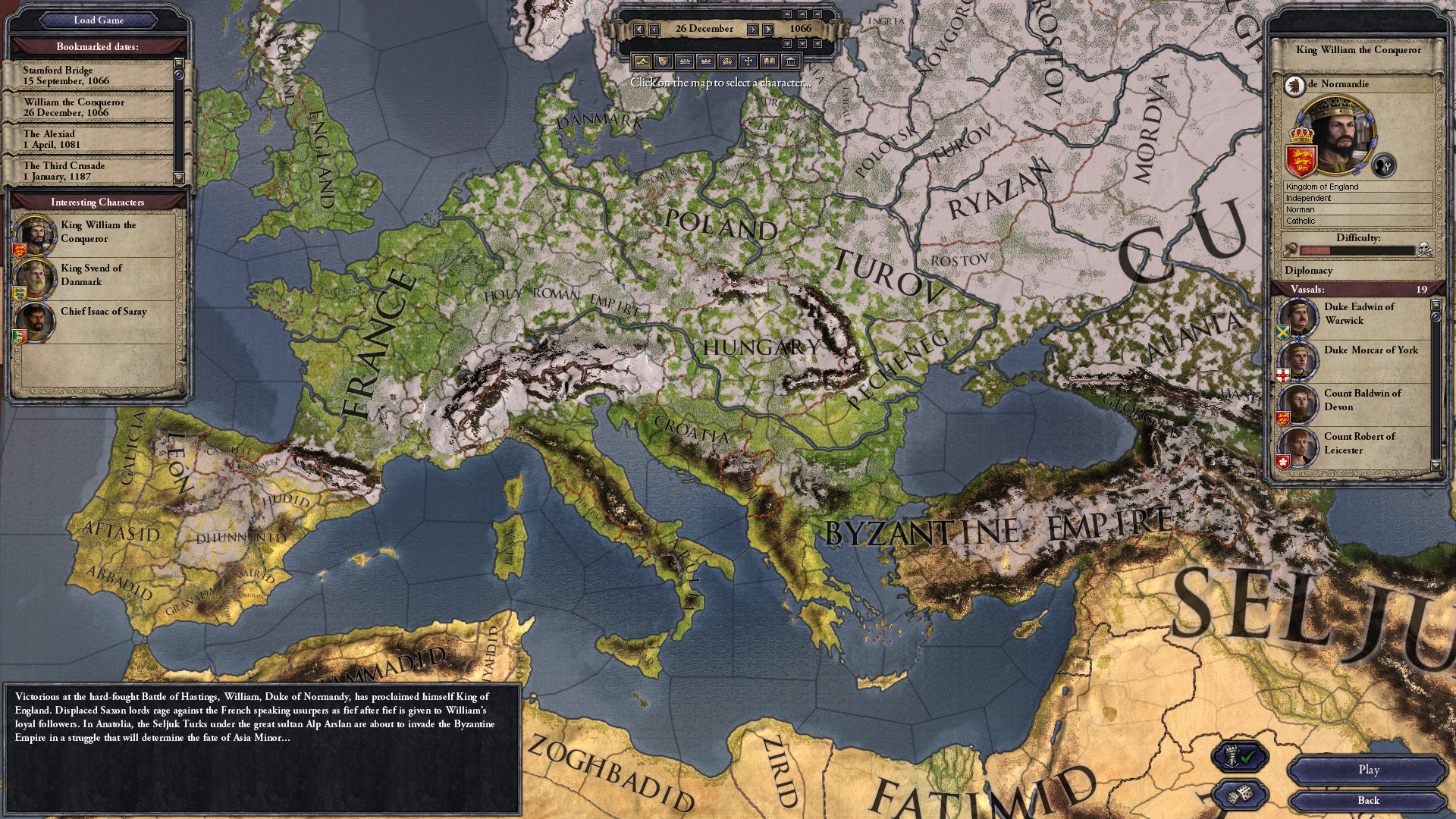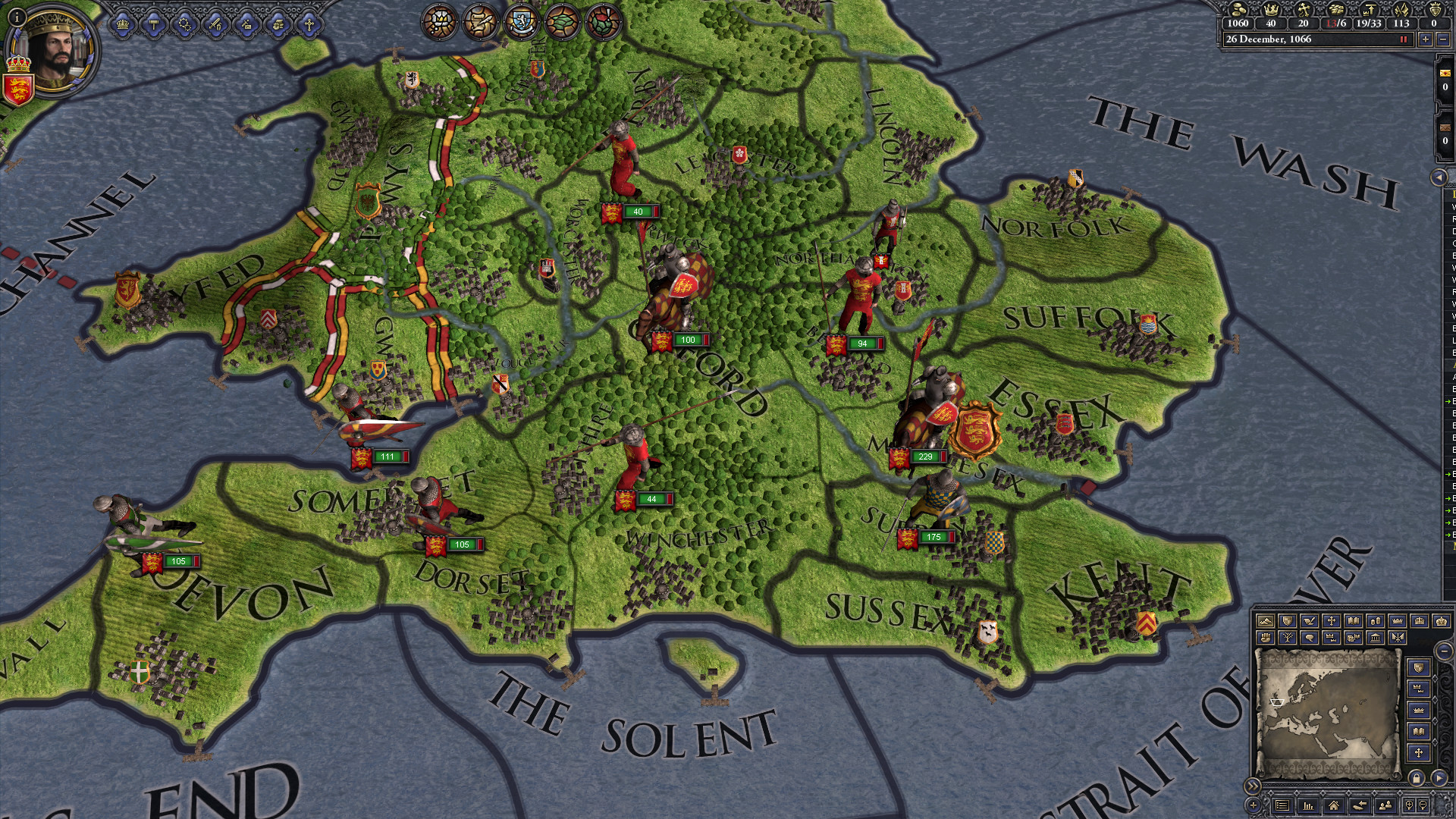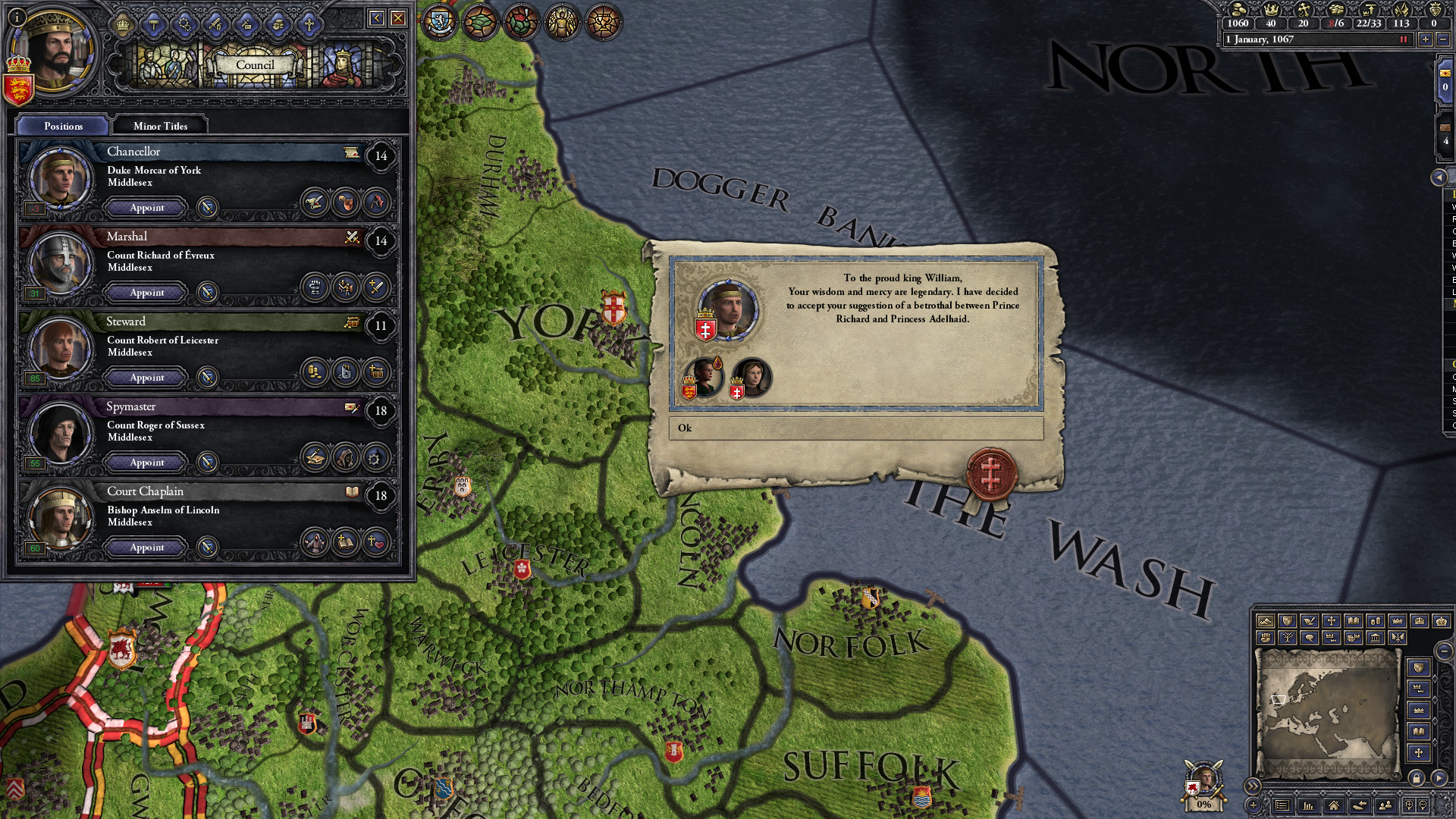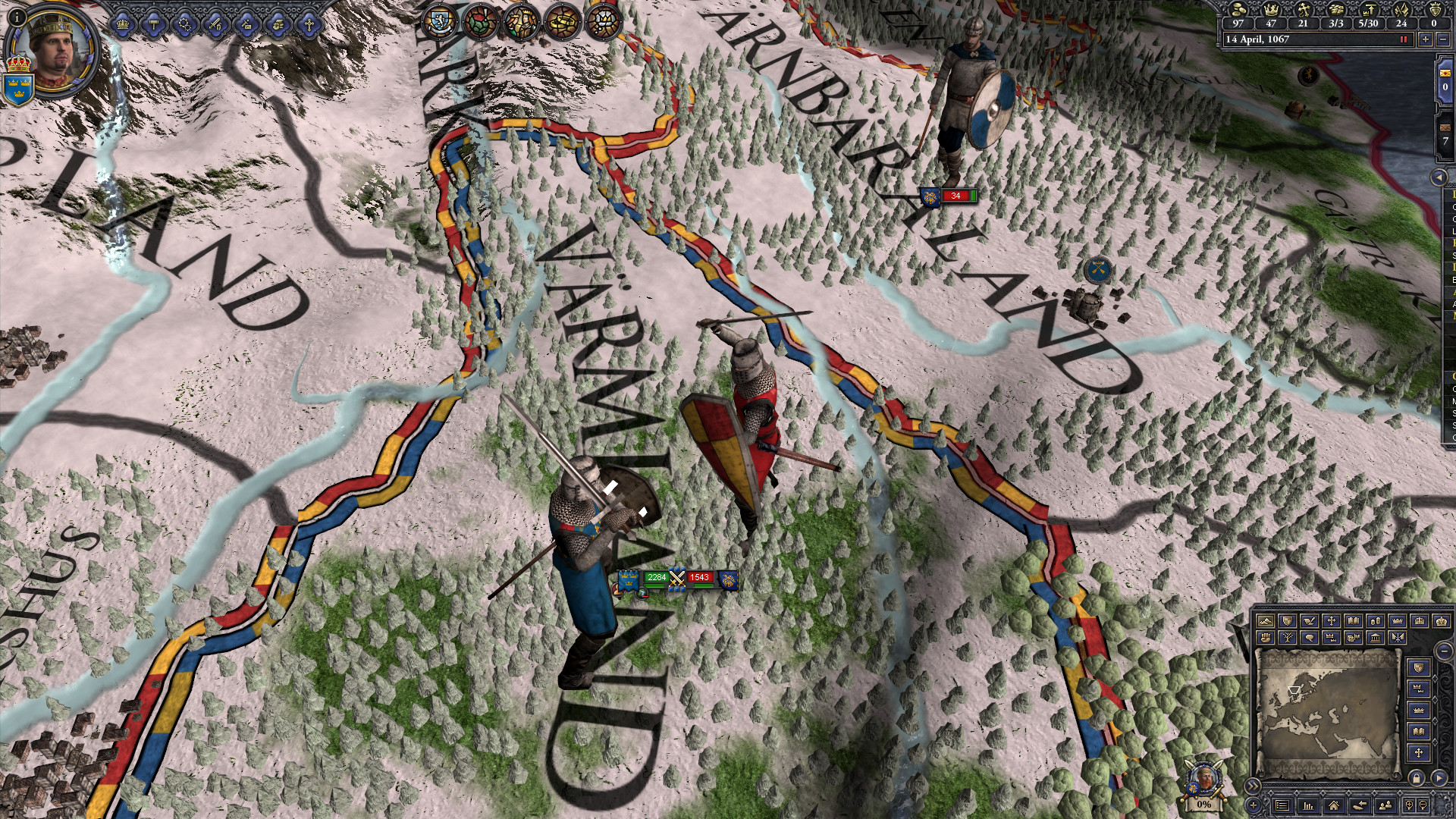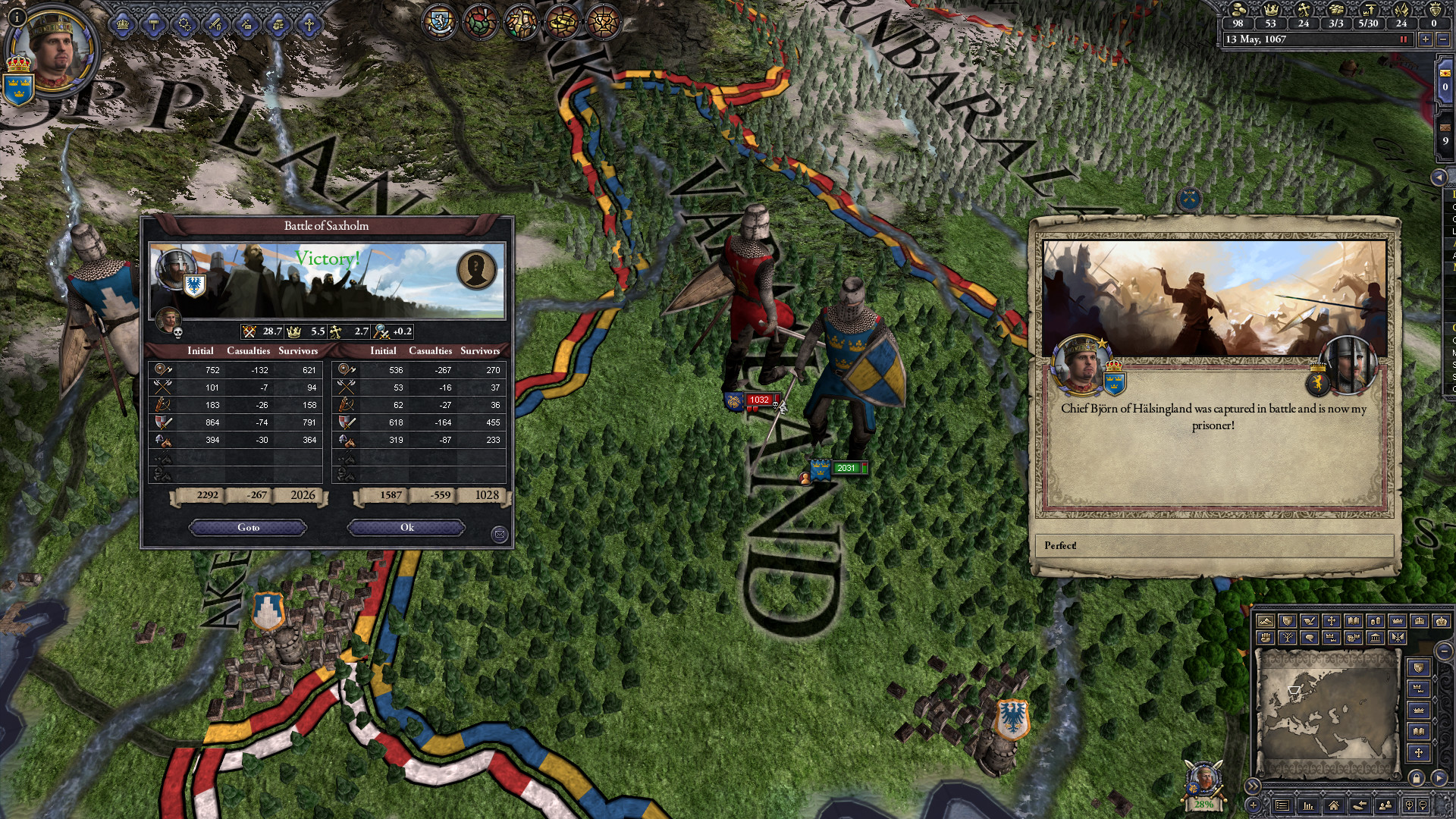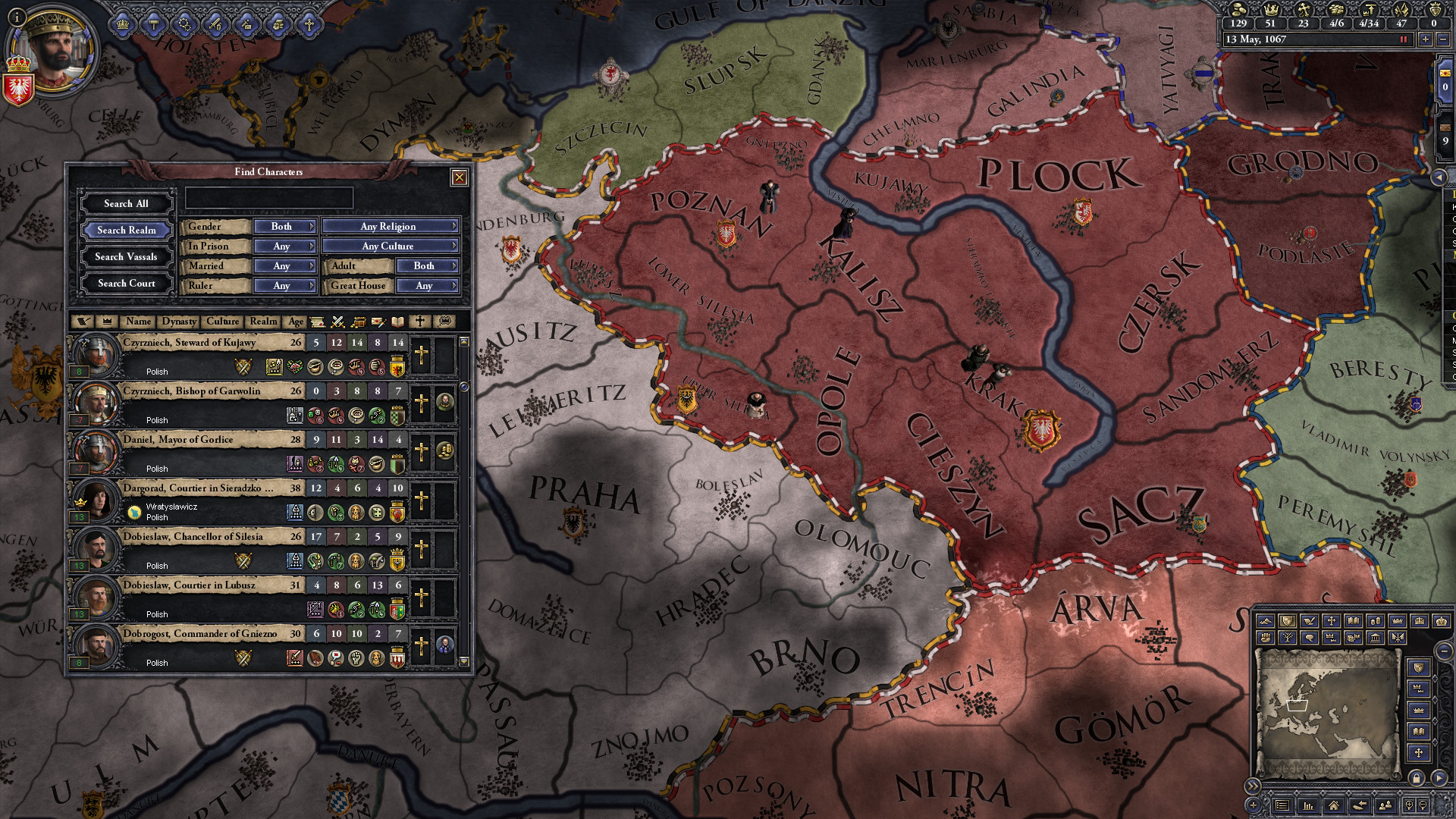A good lord will always need friends to support him. But beware, as loyal vassals can quickly turn to bitter rivals, and some might not be as reliable as they seem... Stand ready, and increase your prestige until the world whispers your name in awe. Do you have what it takes to become a Crusader King?
Crusader Kings II explores one of the defining periods in world history in an experience crafted by the masters of Grand Strategy. Medieval Europe is brought to life in this epic game of knights, schemes, and thrones...
Key features:
- Start a game at any point between 1066 and 1337 and play until 1453
- Pick a Christian lord and make sure his dynasty survives as you play a succession of his descendants through the ages
- Gain Prestige for every successive character you play, furthering the glory of your Dynasty
- Expand your feudal domain - and keep it from falling apart
- Unravel the plots of your courtiers and vassals, each with their own opinions and agendas
- Take up the Cross and fight the Moor, the Heathen and the Heretic.
- Defend against the onslaught of the Mongol Horde
- Struggle with the Pope for control of the bishops
- Relive the Middle Ages with up to 32 other players in a competitive multiplayer mode

Good evening, everyone. I’m Magne “Meneth” Skjæran, one of the programmers on CK2. In the past I’ve written dev diaries about modding, optimization, and quality of life improvements, and I'm writing this somewhat belated (due to technical issues) dev diary.
Today, I return to the topic of modding, and how we work to make life easier for modders. As a former modder, this is a topic I care quite a lot about.
If you’re anything like me, what you really want is statistics. How many people use mods, and which mods are the most popular. Luckily I come armed with exactly that.
As you might know, whenever you play CK2, the game collects some pieces of information about your setup. Things like what version of the game you’re playing, if you’re playing single player or multiplayer, what mods you’re using, and similar. This is all aggregated so that we can see overall trends and consider what areas might need some extra attention.
For mods, the main thing the telemetry provides is how many people use mods overall, and what mods these people use. My data will all be from users who played yesterday; anyone who during yesterday started the game with one or more mods is counted exactly once as a “mod user”, and counted once for each mod they used.
All told, 42% of everyone who played the game yesterday was using at least one mod. This could be anything from a small UI tweak, to a total conversion mod.
On average, anyone using a mod was using 4.24 mods. Once you start using mods, most people are not content with just one.
Further, here’s the 20 most popular mods, and how many percent of mod users (not overall users; multiply by 42% to get that number) that use them:
[LIST=1]
Combined, these 20 mods represent 60% of all mod usage. Since people who use mods on average use more than just one, it also adds up to more than 100% of mod users.
That AGoT comes first is unlikely to be a surprise to anyone; it has long been the most popular CK2 mod. Fun fact: AGoT is so popular, that its most popular start date is the 4th most popular overall startdate, after 769, 1066, and 867.
What is more interesting is that in the top 5 mods, two are “cheat” mods. Since they can’t be used in multiplayer unless everyone has them enabled, the idea of “cheating” doesn’t make all that much sense of course, and should instead be seen as achieving more of a sandbox experience than what the vanilla game provides.
Beyond that, there’s two localisation mods in the top 20; one for Russian language and one for Korean. The sheer amount of work that goes into translating an entire game is impressive, and it is great to see the modders’ work recognized to such an extent. Localisation modding is actually something we recently improved; in the 2.7 patch we moved custom localisation out of the “common” folder and into the “localisation” folder, meaning that it is now possible to use the custom localisation system without changing the checksum. This is especially important for languages with more complex grammar than English, such as the gender rules in French. The official French translation has for a while made use of custom localisation to change a number of words based on whether they’re referring to men or women, but doing similar in a mod would mean changing the checksum, making it impossible for the mod’s users to obtain achievements and play multiplayer with people not using the mod. This is something I know the Russian localisation mod has had problems with, and is a change I hope will lead to even better localisation mods.
There’s also a number of graphics and interface mods, plus several other mods that change the graphics or UI as a part of a larger package (E.G., the optional revamped interface in the Historical Immersion Project). People have done a lot of interesting things with the UI, but I know from experience it can often be somewhat tedious work. In the hopes of making it a bit less tedious, we’re making a console command that’s before only worked in the debug version of the game (which is not publicly available) available to everyone in a future patch (not 2.7.1). This console command is simply called “guibounds”, and what it does is that whenever you hover over a UI element, the area it covers is highlighted, and the name of the element, its size, and the file and line it is defined on is shown. This functionality is actually available in the release version of the game right now in a somewhat obscure fashion: if you try to open the console while on the main menu, it’ll be enabled. However, once you get into the campaign there’s no way to actually disable it since the console command isn’t available.
Below is an image showing what the guibounds functionality does:
There’s also a few large mods beyond AGoT in the top 20. CK2Plus even manages to take two spots on the list by including a mod that toggles the existence of India, while being pretty much tied with the Historical Immersion Project; some days HIP leads, other days CK2+ does.
The rest of the mods are smaller, adding small pieces of focused functionality.
Both types of mods we’re always trying to help by making the game more moddable. One changelog entry I think a lot of modders will find useful is this, which will be included in 2.8:
- Most effects and triggers that take a number can now take a variable name instead, and will grab the variable from the current scope. E.G., "wealth = test_variable"
This should allow mods to do far more interesting things with variables than is currently possible.
As a final note, modding is something we on the CK2 team take very seriously. Mods have the ability to add a lot of interesting alternative ways to play the game, and therefore helps keep the game fresh even for veteran users. In general, improvements to moddability also opens up new possibilities for our content designers, or can save them time by making their work simpler.
We’re therefore constantly considering how we can ensure new additions to the game are moddable, and we often go back and tweak existing functionality to open it further to modding.
We would love to hear your thoughts on what we could do better in this regard.
Read the original post
[quote]Useful linksOfficial Website Crusader Kings II Wiki Crusader Kings II Development Diary Archive
Minimum Setup
- OS: Ubuntu 16.04 x64
- Processor: IntelR PentiumR IV 2.4 GHz or AMD 3500+Memory: 4 GB Hard disk space: 2 Gb Video Card: ATI Radeon HD 6750 / NVIDIA GeForce 320 / NVIDIA GeForce> 9600 or higher. 1024MB graphics memory required.
- Memory: 4 GB Hard disk space: 2 Gb Video Card: ATI Radeon HD 6750 / NVIDIA GeForce 320 / NVIDIA GeForce> 9600 or higher. 1024MB graphics memory required.
[ 6487 ]
[ 2234 ]
[ 1974 ]

